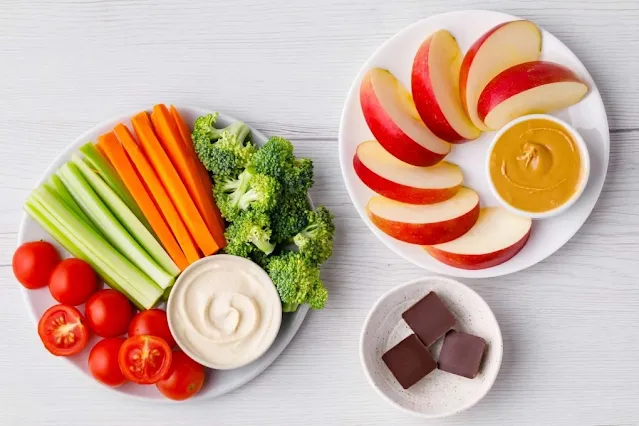Building sustainable eating habits, prioritizing quality over quantity and controlling blood sugar helps menopausal women reduce belly fat.
Menopause is a period when many women experience major changes in their bodies, especially the accumulation of belly fat. The main cause comes from the decline in estrogen - an important factor in controlling weight and distributing body fat. However, according to nutrition experts, if the right method is applied, reducing belly fat during this period is completely feasible and safe.
One of the notable physiological changes in menopausal women is the shift of fat from the hips and thighs to the abdomen. According to research published in The Journal of Clinical Endocrinology & Metabolism, low estrogen levels make insulin less effective, thereby increasing the risk of fat accumulation in the central area of the body. In addition, metabolic rate also declines with age, causing the body to burn less energy.
Focus on a low-carb diet
To control and reduce belly fat, Australian nutritionist Dr. Joanna McMillan recommends that menopausal women focus on a diet low in refined carbohydrates, high in fiber and lean protein. Foods such as green vegetables, beans, nuts, salmon, chicken breast, eggs, and unsweetened Greek yogurt not only help you feel full for a long time but also help maintain muscle mass - a key factor in the fat burning process.
Avoid strict diets and prolonged fasting
In addition, you should avoid strict diets or prolonged fasting. These methods can reduce muscle mass, slow down metabolism and make fat easier to accumulate again. Instead, build sustainable eating habits, prioritizing quality over quantity.
Controlling blood sugar
An important point that cannot be ignored is controlling blood sugar. Mayo Clinic (USA) recommends that postmenopausal women should limit foods with a high glycemic index such as white bread, soft drinks, fast food. Instead, prioritize whole foods, whole grains and fruits high in fiber such as apples, pears, blueberries. These foods help prevent insulin spikes - a hormone that directly affects belly fat storage.
Increase physical activity
In addition to diet, physical activity also plays a key role. Dr. Pamela Peeke, a medical expert at the University of Maryland, said that combining cardio exercises such as brisk walking, cycling or swimming with resistance exercises such as light weightlifting or yoga will help improve the muscle-to-fat ratio and increase the ability to burn calories even at rest. A 2022 study in the journal Menopause also showed that postmenopausal women who exercised regularly for at least 150 minutes a week had significantly lower waist circumferences than the sedentary group.
Get enough sleep, limit stress
Sleep and stress are also two indirect factors that affect belly fat. When there is a lack of sleep or prolonged stress, the level of cortisol - the stress hormone - increases, promoting fat storage in the abdominal area. According to British nutritionist - Dr. Rhiannon Lambert - menopausal women should maintain 7-8 hours of sleep every night, avoid caffeine after 3pm and apply relaxation techniques such as meditation, deep breathing or walking outdoors.
Reducing belly fat in postmenopausal women is a process that requires patience and proper understanding. The combination of a scientific diet, reasonable exercise, adequate rest and stress management is the key to regaining shape, maintaining health and improving quality of life during this challenging transition period.
(According to Healthline, Mayo Clinic)


